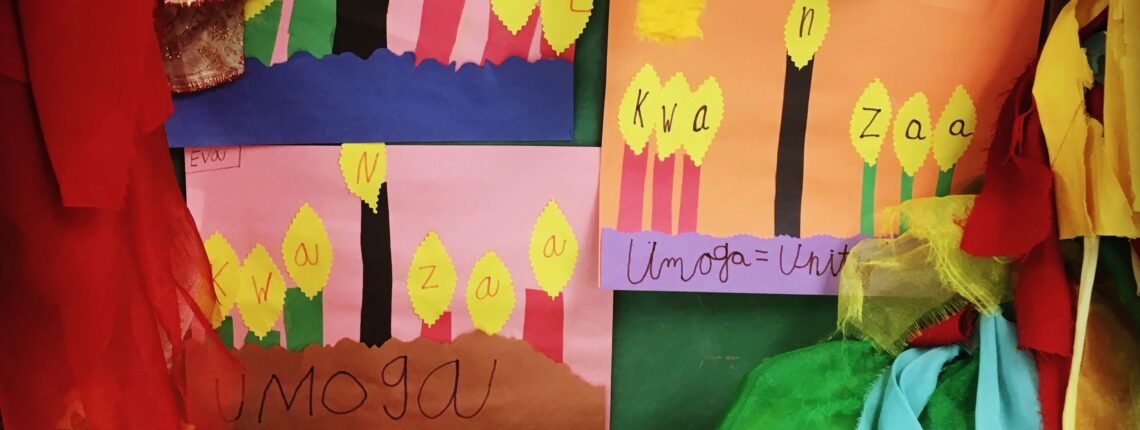Kwanzaa, an annual celebration of African American culture, dovetails so nicely with the turn of the calendar year. It uses candles to symbolize core values that, day by day, over seven days, carry participants through a deep and warm self-review and community-building vision. One might use the framework it offers, in a respectful way, as a universally helpful guide toward New Years’ resolutions. The ideas emerge from African traditions to create a unique African American centered path of healing and self-determination. There is so much to learn in its thoughtful structure, and in its cultural touchstones. Check out https://www.oprahdaily.com/life/a34894511/kwanzaa-traditions.
Around Dr. Martin Luther King, Jr.’s Birthday, and the ensuing month of African American History Month, schools and cultural centers focus on many stories of the Civil Rights Movement. Myths are currently being unpacked for their deeper and more complex stories of struggle and achievement. We tell stories of an American history rooted in enslavement and resilence, struggling still with racial injustice. It’s also important to tell the stories of cultural joy, love, and success.
These holidays are invitations to acknowledge American history’s harms and build a more just society. Taking this mission seriously is the work of high values. We are challenged to keep these days focused on reflection, and social service. A Season For NonViolence outlines a time to study nonviolence as an approach to injustice, a path toward solutions. It takes place between January and April – the two dates when the world’s most famous leaders of revolutionary non-violence were themselves assassinated, Gandhi and King: www.GandhiKingSFN.org.
One mission of progressive organizations such as The Gandhi King Season for NonViolence is to dig into history and share “hidden heroes” of equality and justice. Even Rosa Parks, the subject of America’s most simplified and iconic civil rights story, is being fleshed out, made more real, honored as complex. Pre-dating her celebrated protest is the interesting story of a child, Claudette Colvin. When teaching children, stories about children take on new gravity, and this story about Claudette Colvin demonstrates the power of Black History Month in our educational framework, showing how our courage to stand up for what’s right is bolstered by our learning.
We can similarly approach June and July with an orientation to the celebrations of rights and the many who have made this story, including the anniversaries of the Civil Rights Act and Title IX, which both closely follow Emancipation Day (Juneteenth).

